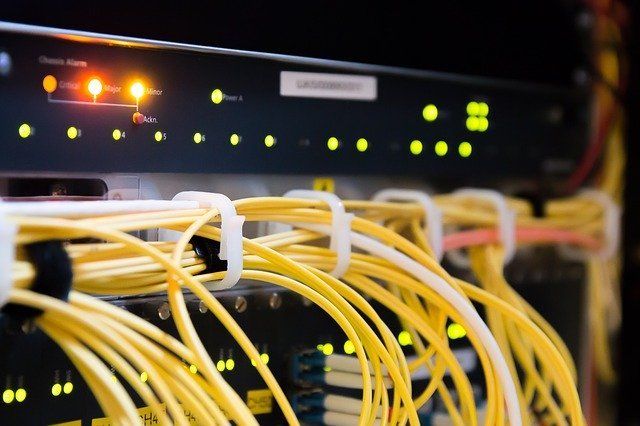IT Infrastructure and the Need for Upgrade
Without IT infrastructure, many business operations in an organization may not run smoothly.
What is IT Infrastructure?
IT infrastructure is all the components of your technology tools that make providing IT Services and Support to employees, clients, and other businesses possible.
It is all of the hardware, software, network, and other equipment required to deliver, manage, and monitor an enterprise IT system.
Components of IT Infrastructure
Hardware
These are tangible parts of an IT infrastructure. They include servers, computers, storage devices, and others. The power, network cables, and dedicated IT rooms are also considered part of the hardware.
Software
Applications that run on top of hardware to provide the various services offered by an organization are the software. They include customer relationship management (CRM) tools, productivity apps, Enterprise resource planning(ERP), and various custom business solutions.
Network
For modern businesses, connectivity is as important as other IT infrastructure components. It helps with communicating with clients, service providers, and employees.
Network infrastructure includes both the hardware and software that makes communication possible in a company.
Cloud
The trend towards cloud adoption has changed the face of many businesses. Instead of ownership and maintenance, a small business can just rent software, storage space, or infrastructure in the cloud to conduct its business operations.
Why You Should Upgrade Your IT Infrastructure
You may want to invest once in your company’s IT tools and forget about it. However, such a strategy doesn’t work. Equipment may degrade over time, become unusable for current tasks, or outdated for security reasons.
Obsolete IT infrastructure can negatively impact your business productivity and leave it open to attacks.
Signs that You Need to Upgrade Your IT Infrastructure
Some of the signs that indicate an urgent need for an infrastructural upgrade are covered below:
Outdated Software
For convenience or other reasons, some businesses ignore timely updates.
Out of date or obsolete software can slow down your business operation. It can put your organization at a competitive disadvantage due to software instability and also expose your network to malware and cyber-attacks.
Even if your employees are used to the old software, upgrades should be done regularly.
Unstable Servers
If one or more of your servers crashes regularly, it is time to upgrade them. Servers can crash for various reasons including processor overload, corrupt disks, or even external attacks. Whatever the cause, crashing servers is a pointer to an urgent need for IT upgrade.
Excessive Energy Use
If your business energy bills are increasing without an increase in service delivery, it is probably due to worn-out infrastructure.
Tech equipment consumes more power as they age. In addition, newer hardware is designed to be more power-efficient and use lesser energy. An IT infrastructure upgrade may reduce your energy bill.
Compromised System
A cyber breach of a business system demands an immediate evaluation of your current infrastructure to see where the lapses are.
Old software and hardware can be vulnerable to cyberattacks which may lead to loss of data, accounts compromise, and system corruption.
Compatibility Issues
As your business grows, you are likely to acquire new hardware and software to cover more operational needs. Unfortunately, some old infrastructure is incompatible with new ones.
Incompatibility can slow down your business operations and require constant IT support to solve the incessant problems that arise from their usage. An upgrade can help solve this problem.
Non-Deployment to the Cloud
There are several benefits to using cloud technology . If your business has not migrated yet, it is time to upgrade the IT infrastructure to take advantage of cloud resources at a lower cost.
Legal Non-Compliance
Violating legal requirements can result in heavy fines. Analyze your current IT system to ensure that you are not using insecure, banned or outdated technology for processing user data.
Any system or processes that can make your business violate compliance requirements should be upgraded asap.
How to upgrade your IT Infrastructure
Unless you are a trained IT expert who keeps abreast of industry trends and standards, you would need the help of experts for an IT infrastructure upgrade.
Moreover, if you or your employees are busy with other projects and cannot regularly monitor your computer systems, you would not know all the kinds of upgrades that your business needs.
It is best to consult with an experienced MSP such as us ( SDTEK ) if your system is showing any signs of needing an IT upgrade. We can better help you determine the areas of your IT infrastructure that need upgrading and the level of changes required. Contact us today , we’d be happy to speak with you.
The post IT Infrastructure and the Need for Upgrade appeared first on SDTEK | San Diego, CA.



